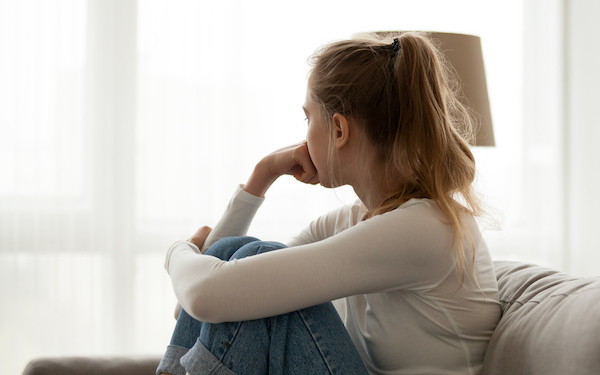
A third of looked-after children aged 16 and 17 were in unregulated settings last year, Department for Education figures show.
Young asylum-seeking children and others in section 20 accommodation – rather than on care orders – were disproportionately represented in these settings, while the sector was largely provided by the private sector, according to the statistics, released on Thursday (14 July).
The findings come ahead of the introduction next year of Ofsted regulation of these placements against new national standards, in the wake of widespread safeguarding concerns, including in relation to children being placed in settings such as caravans, settings or barges.
However, the policy has proved controversial because the services – unlike counterparts in children’s homes – will not be required to provide young people with ‘care’ and Ofsted will inspect providers as a whole, not individual settings.
This has sparked accusations from children’s rights campaigners of a two-tier system under which 16- and 17-year-olds in these settings would receive inadequate provision and be placed at greater risk, compared with those in foster care or children’s homes.
Fall in use of unregulated care following sharp rise
The number of 16- and 17-year-olds in unregulated care fell by 7% in the year to March 2021, to 5,980, having more than doubled from 2013-20. Just over three-quarters were aged 17 in the settings which, since September 2021, have been barred to children aged under 16.
There was a shift in provision from independent to semi-independent settings – which involve a greater level of support.
Of the 5,980, 4,120 (69%) were living semi-independently, nearly double the 2,210 who were doing so in 2018. Meanwhile 1,860 were living independently, almost 1,000 fewer than were doing so three years previously.
Related reading
Ofsted to inspect and register unregulated accommodation providers for 16–17-year-olds in care
Sector split on unregulated placements overhaul as under-16s ban looms
Unaccompanied asylum-seeking children made up a disproportionate number of those living in unregulated accommodation, accounting for 32% of those living independently and 34% of those living semi-independently, compared with just 18% of all 16- and 17-year-olds in care.
The majority – 69% in independent settings and 70% in semi-independent provision, compared with 41% of all looked-after children aged 16 and 17 – were in section 20 accommodation. This involves cases where a child is in care with the agreement of those with parental responsibility (PR) or because no one has PR for them, as with young asylum seekers, or they have been abandoned.
The vast majority (77% for independent settings, 84% for semi-independent) of children in unregulated accommodation were living in private provision, compared with only 54% of all 16- and 17-year-old looked-after children. The proportion was similar to children’s home placements, 79% of which were delivered by the private sector as of March 2022.
‘Unintended consequences’
While children’s rights campaigners have argued that these settings should not be subject to lesser regulation than children’s homes, councils have raised concerns that regulation of so-called supported accommodation may worsen the insufficiency of placements for looked-after children.
Addressing council directors at last week’s Association of Directors of Children’s Services (ADCS) conference, Ofsted national director for social care, Yvette Stanley said: “We know that regulating this provision for the first time will lead to unintended consequences. I know you will be talking to your providers about whether they intend to register and forming contingency plans if they do not.”
She said Ofsted would take a flexible approach to regulating the sector, which will be referred to as “supported accommodation”
While such settings are supposed to provide support, not care, Stanley stressed the two types of provision could not be easily separated.
“We absolutely don’t want providers to think that providing any kind of ‘care’, however temporary, to young people will mean they are automatically operating illegally,” she said. “High-quality supported accommodation should be caring, kind and nurturing. We will make this clear in the inspection framework and guidance.”
And though Ofsted would be inspecting providers of supported accommodation as a whole, Stanley said inspectors would be able to examine “poor or declining” settings.
Risks around delay in inspecting settings
While Ofsted will start registering supported accommodation providers in April 2023, it will not start inspecting them until April 2024, Stanley confirmed.
However, Jonathan Stanley, principal partner at the National Centre of Excellence for Residential Child Care (NCERCC), said the sector needed to be monitored sooner, in the context of it being about the same size as the children’s home sector, with some placements costing “five-figure sums per week”.
He added: “It needs urgent transitions arrangements for both regulation and procurement/commissioning. It cannot be left for two years.”



 Bournemouth, Christchurch and Poole
Bournemouth, Christchurch and Poole  Hampshire County Council
Hampshire County Council  Oxfordshire County Council
Oxfordshire County Council  South Gloucestershire Council
South Gloucestershire Council  Wokingham Borough Council
Wokingham Borough Council  Providing a lifeline for social workers who want to get back into the sector
Providing a lifeline for social workers who want to get back into the sector  The highs and lows of a children’s services’ transformation journey
The highs and lows of a children’s services’ transformation journey  Embedding learning in social work teams through a multi-agency approach
Embedding learning in social work teams through a multi-agency approach  The family safeguarding approach: 5 years on
The family safeguarding approach: 5 years on  Harnessing social work values to shape your career pathway
Harnessing social work values to shape your career pathway  Workforce Insights – showcasing a selection of the sector’s top recruiters
Workforce Insights – showcasing a selection of the sector’s top recruiters  Join our team to help technology enabled care transform lives in Nottinghamshire
Join our team to help technology enabled care transform lives in Nottinghamshire  Free CPD on Parkinson’s for health and social care staff
Free CPD on Parkinson’s for health and social care staff 

 Facebook
Facebook X
X LinkedIn
LinkedIn Instagram
Instagram
Comments are closed.